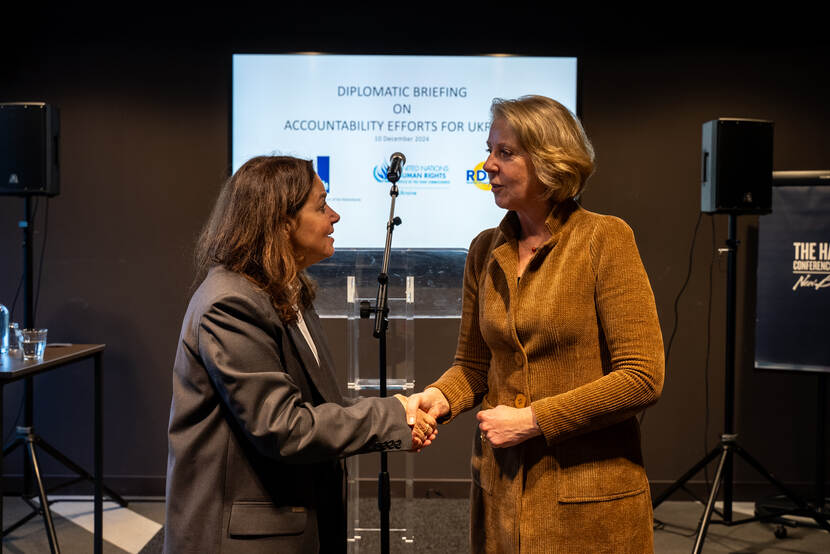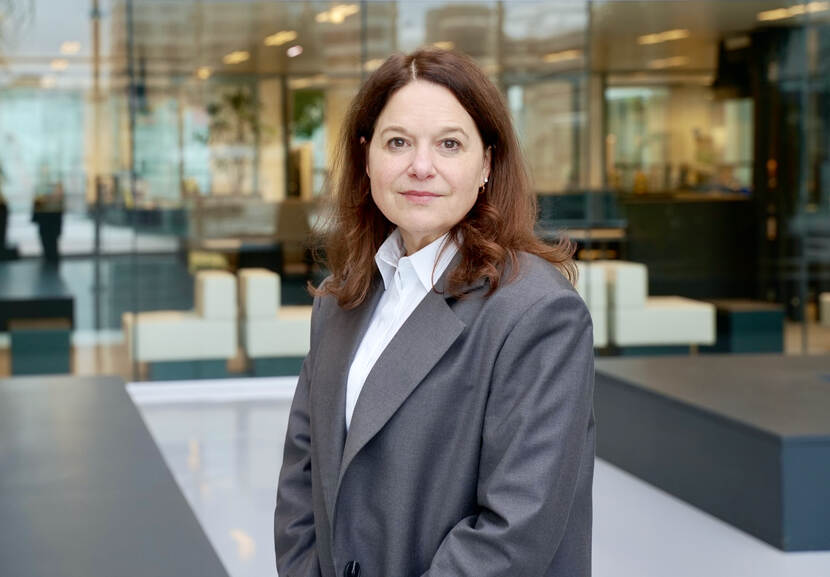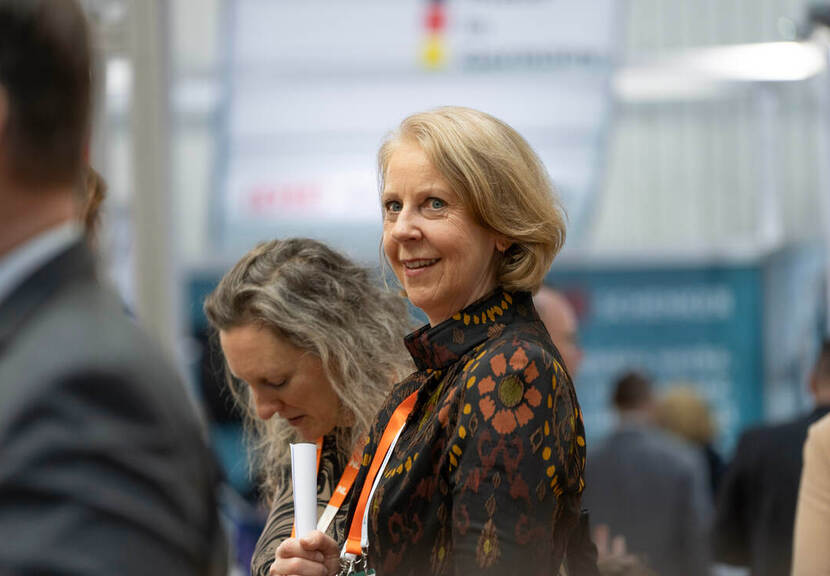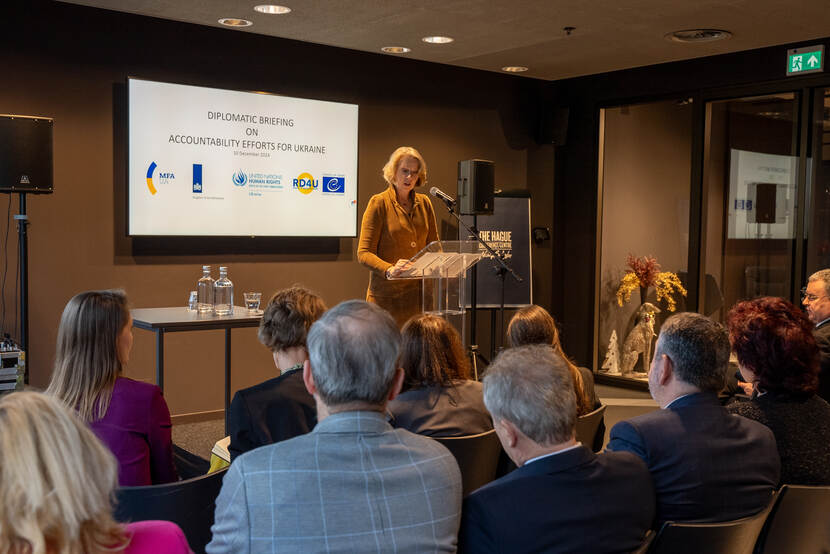War in Ukraine: €8 million for UN Human Rights Monitoring Mission
Three years of Russian aggression have taken a heavy toll on the people of Ukraine. Ukrainian civilians have been killed, wounded, tortured, raped and abducted. Entire neighbourhoods, hospitals and key infrastructure have been destroyed. The Netherlands believes that justice must be done and the perpetrators of these crimes must be held responsible. The UN Human Rights Monitoring Mission (HRMMU) makes a crucial contribution to this.

On 10 December, during International Human Rights Day, we celebrate the fundamental freedoms that everyone is entitled to, such as the right to safety, the right to work and the right to go to school. Unfortunately, these rights are not available to everyone everywhere. In an increasing number of countries, human rights are under pressure, including in Ukraine, where people are subjected to human rights violations every day.
‘The stories that we have been told are truly sickening’, says Danielle Bell, head of the UN Human Rights Monitoring Mission in Ukraine. ‘We spoke to people that had been subjected to torture, ill-treatment, and sexual violence. Sometimes on a daily basis. We are seeing an increase in civilian casualties from glide bombs and first-person view drones. In occupied territory, we see the indoctrination of schools, where children are not allowed to speak Ukrainian, and forced to learn the Russian curriculum and work for military groups.’
UN Human Rights Monitoring Mission in Ukraine
HRMMU reports on the human rights situation in Ukraine. The aim of the mission is to strengthen and protect human rights in Ukraine and ensure that those who commit human rights violations are held responsible.
The Netherlands stands for a world in which human rights are respected and perpetrators are held responsible for their actions. Only then, people can live in peace and security. That’s why the Netherlands is committed to supporting the UN Human Rights Monitoring Mission in Ukraine (HRMMU). Yesterday, Erica Schouten, Special Envoy for Ukraine, announced that over the next two years the Netherlands will be making €8 million available for this mission.
‘HRMMU’s investigative work is of great importance to Ukraine’, Schouten explains. ‘Their work is impartial, accurate, credible and reliable, and their findings are used in national and international investigations into violations of human rights and international law. HRMMU makes a crucial contribution to establishing the truth and preventing impunity.’


Disturbing trends
Since the large-scale Russian invasion, more than 10,000 Ukrainian civilians have been killed and more than 20,000 have been injured. Entire neighbourhoods and villages have been destroyed, and hospitals, schools and infrastructure lie in ruins. Large-scale attacks on power plants cause power outages and limit people’s access to water, heating and the internet.
In 2024, HRMMU recorded a dramatic increase in Ukrainian citizens that were killed or were injured by the war, says Bell. ‘This year, civilian casualties have increased by 30%. In September, we recorded the highest number of causalities since mid-2022. A disturbing trend that we are seeing in Ukraine is the usage of new weapons, and weapons that are used more destructively. This causes a dramatic increase in civilians that are harmed.’
The situation is also dire in detention facilities in occupied territories and in the Russian Federation, Bell continues. ‘We spoke to prisoners of war that had been beaten with metal rods. They showed us where their bones had been broken. And they showed scars on their body, where they had been bitten by dogs, or burned by a cigarette. Each person we interview, adds another layer of the horror that is unfolding in these detention facilities everyday.’
Bear witness
HRMMU teams are in Ukraine to document such human rights violations and infringements of international humanitarian law. Their reports can be used as evidence in court cases and give the international community reliable insight into the human rights situation in Ukraine.
HRMMU has done more than 300 missions this year, including more than 100 to frontline areas. ‘We talk to people in their homes about what is happening to them. About the everyday realities of war’, Bell explains. ‘This means that my team can put on public record what is unfolding every day as a consequence of this horrible conflict.’
‘HRMMU’s work is not just about collecting data and evidence. It’s also about the stories behind the numbers’, Schouten adds. ‘These are stories that need to be heard. We owe it to the victims and their families. These crimes must be documented, because justice is also about acknowledgement: “This is what happened.” And we, the international community, must bear witness.’

Support for justice in Ukraine
The Netherlands, as lead nation on restoring justice, point 7 of the Ukrainian Peace Formula actively supports Ukraine in ensuring accountability. Since the beginning of the Russian war, the Netherlands has made more than €105 million available for that purpose. The Netherlands also supports the investigations of international crimes conducted by the International Criminal Court and the prosecution service of Ukraine, and it is working to facilitate international coordination and information sharing, for example via the Dialogue Group on Accountability for Ukraine.
The Netherlands is also the host state of the Register of Damage for Ukraine and the International Centre for the Prosecution of the Crime of Aggression against Ukraine (ICPA), which are based in The Hague. The Netherlands also supports the establishment of a special tribunal for the crime of aggression and has offered to host this tribunal in The Hague.